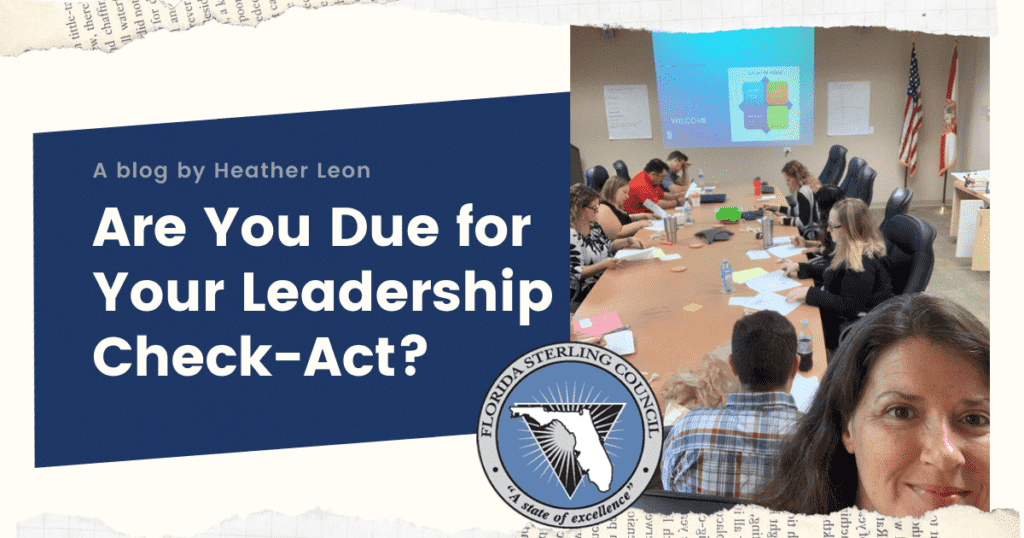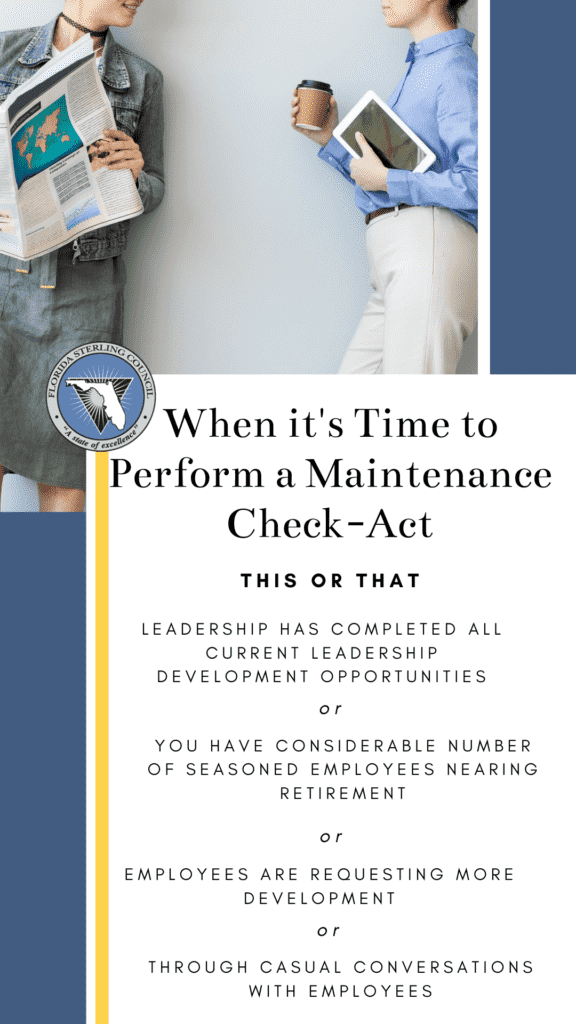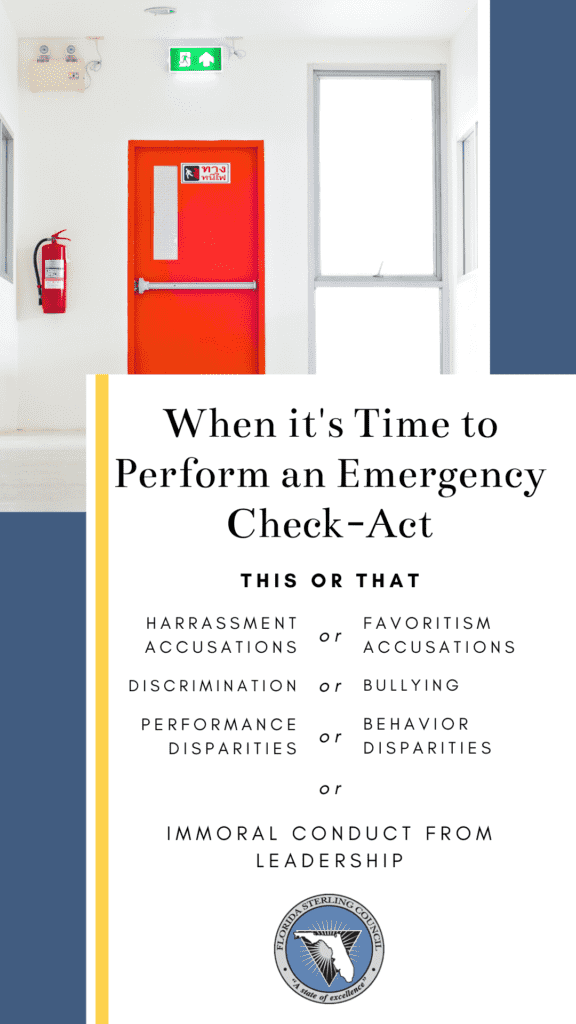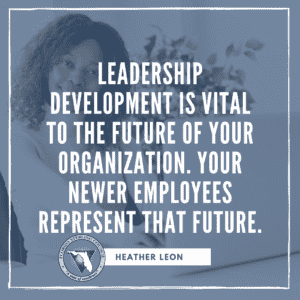
Published Wed Sept 2, 2020
(HL) – If Covid-19 has taught me anything, it’s how important leadership at all levels is in every facet of life, especially at work. Organizations that come out of the other side of this globally traumatic event in the best shape will be those committed to the health of their leadership programs since long before we learned about the coronavirus. To prepare for the next hardship, whatever that may be, it’s time to give your leadership development efforts a check-up, or maybe since we’re talking about process improvement: let’s call it a Check-Act.
 Just like your visits to the doctor for your annual check-up, an organization devoted to leadership at all levels will do regular and preventive Check-Acts. Signs it’s time for a maintenance and upkeep Check-Act include: all of your leaders have completed the leadership development opportunities you currently offer, you have a large number of seasoned employees retiring in the next two to five years, or you have employees requesting more development through your employee engagement surveys. Other ways of learning that a review of your current offerings is warranted is through casual conversations with your employees. Preventive Check-Acts also ensure your leadership development opportunities align with your mission, vision, and values, and reflect your commitment to leadership at all levels.
Just like your visits to the doctor for your annual check-up, an organization devoted to leadership at all levels will do regular and preventive Check-Acts. Signs it’s time for a maintenance and upkeep Check-Act include: all of your leaders have completed the leadership development opportunities you currently offer, you have a large number of seasoned employees retiring in the next two to five years, or you have employees requesting more development through your employee engagement surveys. Other ways of learning that a review of your current offerings is warranted is through casual conversations with your employees. Preventive Check-Acts also ensure your leadership development opportunities align with your mission, vision, and values, and reflect your commitment to leadership at all levels.
But what about when your organization is in crisis?

Sometimes, a Check-Act is more urgent. Signs that your current development programs are under the weather include sliding employee engagement results, higher than industry average employee turnover, and waning interest in promotional opportunities by high-potential employees. In the best-case scenario, your employees have outgrown the options you offer.
 There are occurrences that call for emergency Check-Acts in your development programs. These include credible accusations of harassment, discrimination, or bullying, consistent complaints of favoritism in your engagement surveys, significant performance or behavior disparities between work units, and immoral behavior committed by identified leaders on your team.
There are occurrences that call for emergency Check-Acts in your development programs. These include credible accusations of harassment, discrimination, or bullying, consistent complaints of favoritism in your engagement surveys, significant performance or behavior disparities between work units, and immoral behavior committed by identified leaders on your team.
Regardless of the reason for your Check-Act, there are several key factors to look for to know you need to take an action. Effective leadership at all levels starts with your recruitment and promotional processes. If you have not done so before, work with your teams to establish the leadership competencies at every position level in your organization. Some foundational competencies, such as ethics and communication may be vital for all positions, but effective communication for a frontline employee and that of an executive look very different, so are your leadership opportunities allowing a frontline employee to grow these skills now to be proficient in a future position? If resilience and accountability are important frontline leadership skills, is your HR Department specifically recruiting and interviewing for these abilities?
Leadership development is vital to the future of your organization. Your newer employees represent that future. As you complete the Check-Act, and develop new projects, consider having these frontline employees be part of that process. This is also a wonderful opportunity to move your leadership opportunities from being directed by current leaders to empowering emerging leaders to express their interest. Create a process for employees to volunteer or apply to be on teams. This, in and of itself, is a leadership development opportunity, and facilitates buy-in from all levels of staff. It also facilitates cross-functional training, breaking down silos, and allows senior leaders to see if the values they espouse are demonstrated by their emerging leaders.

An important benefit of the multi-level, bottom-up approach is that it helps foster more diversity and inclusion on your project teams and ultimately in leadership. Studies show that all of us are most likely to see potential in employees who are most like ourselves. This means senior leaders tend to mentor people who look like them. By having a process that allows employees to express their interest and show their drive, you can help maintain the diversity and create inclusion at all levels, which will greater prepare your organization for the future.
If you are not sure what type of Check-Act your organization needs, please see the checklist I created for you. Once you have a program in place, you will mostly just have to complete annual Check-Acts as part of your strategic planning process. If your issue is more urgent or you’ve been so successful that you have outgrown your current programs, now is a wonderful time to get your staff at all levels involved in creating and maintaining a healthy leadership development culture and all of the programs that will stem from it.
###
 Heather Leon has been the HR Manager of Training for the Pinellas County Tax Collector’s office for three years and has been a public servant her entire career starting as an AmeriCorps volunteer. She worked for the Florida Department of Children and Families for 15 years working her way up from a frontline employee into management and the Staff Development Department, where she was the project manager for formal mentoring for the Suncoast DCF economic services department. She earned her MBA in 2010 and has been a SHRM certified HR professional in 2017. She is also a certified leadership facilitator and a Lean Six Sigma Green Belt. Leadership development and team building are her life’s passion and work.
Heather Leon has been the HR Manager of Training for the Pinellas County Tax Collector’s office for three years and has been a public servant her entire career starting as an AmeriCorps volunteer. She worked for the Florida Department of Children and Families for 15 years working her way up from a frontline employee into management and the Staff Development Department, where she was the project manager for formal mentoring for the Suncoast DCF economic services department. She earned her MBA in 2010 and has been a SHRM certified HR professional in 2017. She is also a certified leadership facilitator and a Lean Six Sigma Green Belt. Leadership development and team building are her life’s passion and work.

Heather Leon, pictured with family.
Heather’s greatest joy is her family. She and her husband have been married for 10 years and enjoy wonderful adventures with their modern blended family of four children ranging in age from 10 – 25 and their 7 year old grandson. They love traveling, and are happy to live in their sub-tropical paradise in St. Petersburg, FL.
